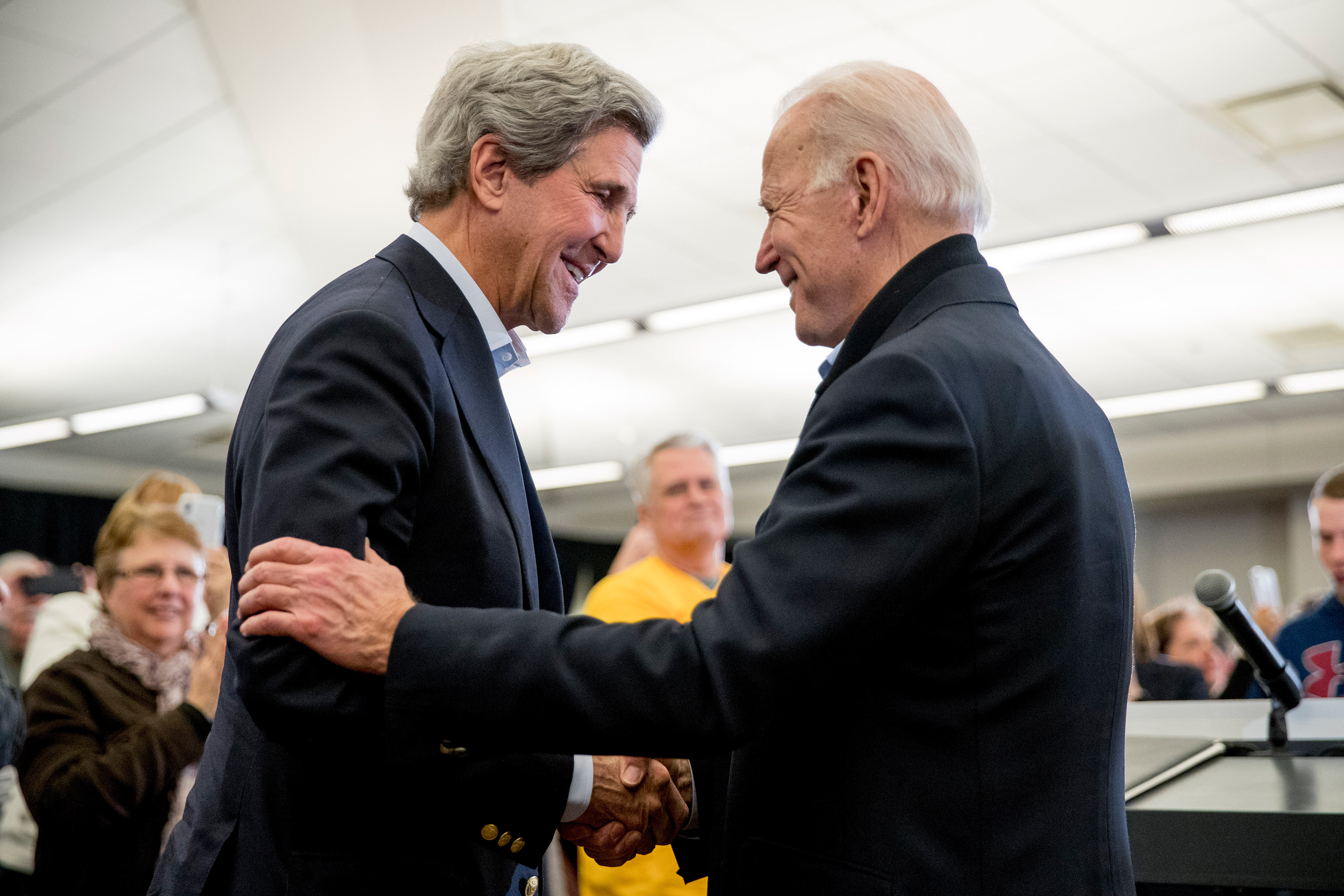Biden names John Kerry climate czar, in a recommitment to global cooperation

President-elect Joe Biden named John Kerry to the newly created role of climate czar, a move that underscores the incoming administration’s commitment to an international-focused approach to the issue and recognition of its strategic importance.
Kerry, the former secretary of state, is a diplomatic heavyweight who helped piece together the landmark Paris climate agreement during the Obama administration and pushed hard for domestic climate policies as a US senator.
“I’ve asked him to return to government to get America back on track to address one of the most urgent national security threats we face—the climate crisis,” Biden said in a statement released on Monday. “This role is the first of its kind: the first cabinet-level climate position, and the first time climate change has had a seat at the table on the National Security Council.”
Kerry’s appointment as “special presidential envoy for climate” is among the first of six cabinet-level nominations that the Biden team announced on Monday, as it works to form a government in spite of President Donald Trump’s refusal to accept the results of the election. Unlike some cabinet roles, it will not require Senate confirmation, the New York Times reported.
Monday’s move, coupled with Biden’s ambitious climate proposals during the campaign, indicates a renewed US commitment to confronting climate change—and a sharp reversal from President Trump’s policies. His administration withdrew from the Paris agreement, worked to unravel environmental protections, and continually strained the nation’s international alliances.
Varun Sivaram, a senior research scholar at Columbia University’s Center on Global Energy Policy, said on Twitter that the appointment demonstrates Biden’s intention to put climate change at the center of national security and foreign policy. He added that it signals to both US allies and enemies that the new administration recognizes the threats from climate change and is committed to addressing them through international cooperation.
Deep Dive
Climate change and energy
The problem with plug-in hybrids? Their drivers.
Plug-in hybrids are often sold as a transition to EVs, but new data from Europe shows we’re still underestimating the emissions they produce.
Harvard has halted its long-planned atmospheric geoengineering experiment
The decision follows years of controversy and the departure of one of the program’s key researchers.
Why hydrogen is losing the race to power cleaner cars
Batteries are dominating zero-emissions vehicles, and the fuel has better uses elsewhere.
Decarbonizing production of energy is a quick win
Clean technologies, including carbon management platforms, enable the global energy industry to play a crucial role in the transition to net zero.
Stay connected
Get the latest updates from
MIT Technology Review
Discover special offers, top stories, upcoming events, and more.